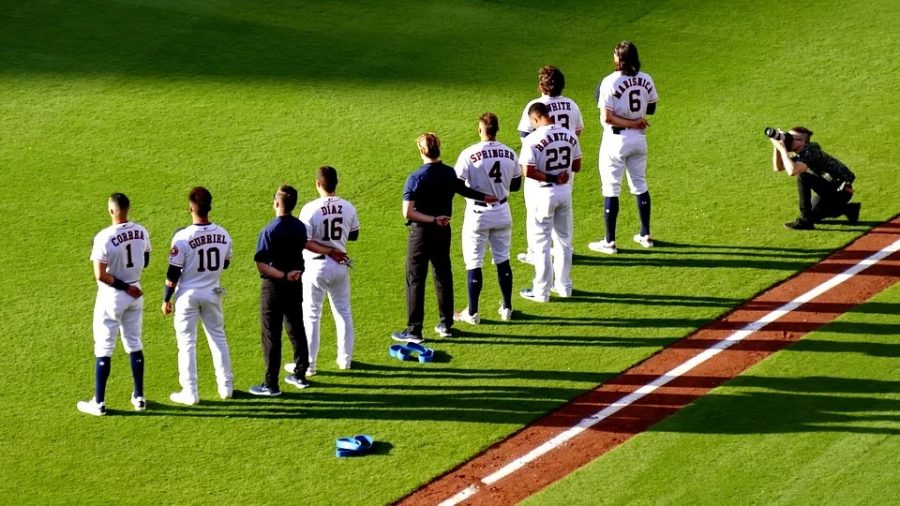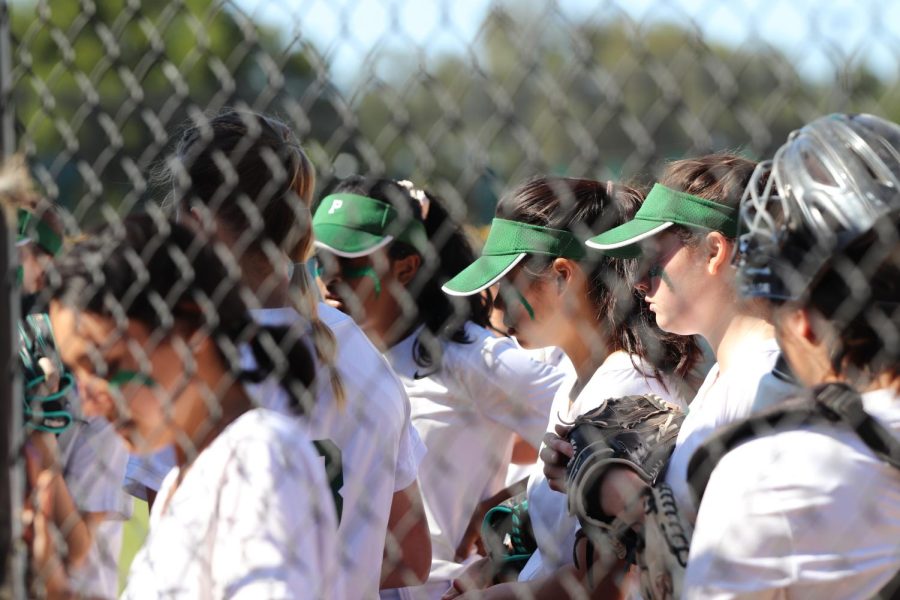Deception on the Diamond
The Astros cheating scandal has emerged as one of the most disgraceful actions towards the game in recent years, even drawing comparisons to the infamous Pete Rose incident of the 1980s. But was the punishment towards the people involved too harsh?
February 20, 2020
White Sox pitcher Danny Farquar looks down at his catcher’s signs to receive the call for the 2-2 pitch. A change-up. It was perfect — the contrast in speed from the previous fastballs would surely get the batter, Astros designated hitter Evan Gattis, to mistime his swing and strike out.
Two loud bangs come from the Astros dugout, and Gattis fouls the ball off. Farquar next tosses a fastball, no bang comes from the dugout, and Gattis fouls it off again. As Farquar sets up for a change-up on his seventh pitch of the at-bat, he again hears two successive bangs from the Astros dugout, just as there had been on his previous change-up.
He was coming to the realization then and there that somehow, the Astros were reporting to their hitters the pitches he was throwing, and that he had to work around it. He steps off the mound, calls his catcher in, and changes his signs. On the next pitch, Gattis strikes out.
At the time, this seemed insignificant — one at-bat during the regular season doesn’t usually cause a stir. But as evidenced mounted for the case that the Astros used technology to steal signs during their historic 2017 season, this at-bat became proof that the Astros have been illegally stealing signs from catchers and report them to hitters.
Lunhow, Hinch, and Cora are all likely to never be involved in professional baseball again.
As a result of their cheating, the Astros organization was fined $5 million, and lost their 2020 and 2021 first and second-round draft picks. General manager Jeff Luhnow and manager A.J. Hinch were both suspended for one year without pay, and subsequently fired the day their punishments were released. The punishment led to outcries from numerous fans, who felt that the people involved (including the players) should have been reprimanded more.
However, the thing that many people fail to realize is that this punishment is much more severe for the executives involved: Luhnow, Hinch, and then-Astros bench coach Alex Cora are all likely to never be involved in professional baseball again. This is a huge turnaround for Hinch, who came one game away from winning two World Series titles in three years and was a promising candidate for the Hall of Fame. Cora has a similar story: after thriving in the Houston organization as their bench coach, he became the manager of the Boston Red Sox. They would go on to win a World Series title in his first season with the team. He too was widely regarded as one of the brightest young minds in all of baseball.
Another controversial aspect of the investigation was that the players who were involved in the scandal were granted full immunity in exchange for their truthful testimony. This helped the league determine exactly what happened and produce their report in a timely manner.
While some fans may disagree with this deal, we do not. The report released by the MLB shows evidence that the Astros coaching staff set up the system, and that the players simply executed it. It is likely that some of the players were opposed to cheating, but to distinguish those players from those who encouraged it would be difficult.
Another contention made by fans is that the Astros 2017 World Series title should be given to the Dodgers, as Houston defeated Los Angeles in seven games that year with the use of the sign-stealing system. However, to suggest that the Dodgers would have won had the Astros not used this system is dangerous. Both teams were star-studded, and the Astros very well could have won without cheating.
The punishments handed out by the league suggest that the MLB wanted to come down with an iron fist in order to demonstrate the severity of the situation. As shown on the chart pictured to the right, this clearly had a positive effect for the Astros hitters. With that considered, this might be the biggest scandal to hit professional baseball since Pete Rose wagered on games while playing.
Rose is the all-time MLB hits leader, and one of the best players of his generation. After retiring from playing baseball in 1986, he went on to manage his former team until 1989, when he was banned permanently for betting on games. Even though he is one of the most accomplished hitters of all time, he will likely never get into the Hall of Fame during his lifetime. The reason for his ban, as explained by the league, was fairly simple — they didn’t want to allow people to taint the game.
John Suter, Paly’s JV baseball head coach, understands the MLB’s punishment and believes in the goals that the league is trying to achieve.
Everybody steals signs, [we] know this.
— John Suter, Paly JV Baseball Coach
“I think if the public believes that baseball is not legit, then it becomes nothing but pro-wrestling,” Suter said. “And while we know wrestling is fixed, it is definitely not fake in the sense that those guys are great athletes.”
However, he thinks that the damage this does to the reputation of the MLB is not nearly as bad as Rose’s gambling. What distinguishes the two is that sign stealing is common practice in baseball, albeit without the use of technology. Runners on second base will regularly relay catchers’ signs to hitters, in order for them to know what pitch is coming. One of us has personal experience of this, having played baseball for a number of years. While playing for Paly, one of the things that players found most intriguing was trying to figure out the signs that pitching coaches relayed to catchers. In order to combat this, pitchers, catchers, and coaches will create more complicated sign systems which use multiple numbers or movements.
“Here’s the thing: everybody steals signs, [we] know this,” Suter said. “Is it any different doing it with a video camera as opposed to the eyeball test, or is it an unwritten rule? There’s a lot of gray area there.” We agree. In the grand scheme of things, sign stealing is not as big a deal as the media suggests. Many portray it as a distinct advantage that grants a team free wins, but that’s simply not the case. Some players don’t even like to know what pitch is coming, because it messes up their routine. While the Astros 2017 season will always have an asterisk next to it, we don’t think you can discredit their tremendous season entirely or suggest that their sign stealing is as bad as fixing games.
Coach Suter brings up the fact that this punishment could have been handed out in order to scare other teams that were suspected of doing the same thing. As the Astros news has surfaced, others have come forward to back up the fact that machine-aided sign stealing is eminent in the MLB. Most notably, Cy- Young winner Jack McDowell accused Hall of Fame manager Tony La Russa of setting up a camera in center field to steal signs during the late 1980s. For all we know, this could have been going on for decades, and this is just the first we’re hearing of it.
“How many teams are in the league? 30 teams?” Suter said. “Do you really think in your heart of hearts that these three people were the only ones that were cheating or using video devices?”
He brings up a good point. We think that the league had to be harsh, but ensure that it didn’t associate sign stealing with betting on games, because the two are so different. Sign stealing has been going on since baseball’s inception, and betting on games is just blatantly wrong.
Meanwhile, the implicit consequences brought upon the people involved is greater than people realize. Baseball fans will always wonder if the Astros were as good a team as their record suggests. They will always wonder if they should’ve won that World Series, or if it was just the product of their cheating.
Isn’t that punishment enough?








